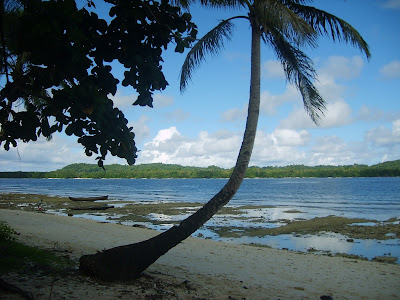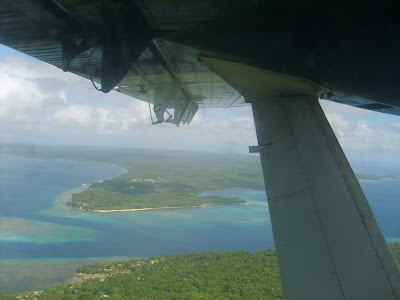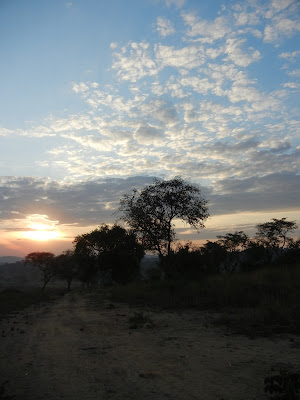This is the first of a two part post that reflects on the last decade of my life. In a few weeks I will be turning 30. My
last post explained how turning 30 has made me question whether or not I have accomplished much with my life because 30-year-old Rachel is not where 20-year-old Rachel thought she would be. However, through a study of Philippians, I realized that it is not about my accomplishments, but the motivations for the accomplishments. It is about recognizing if in what I have done, if I have done it for my glory or for Christ's. I hope and pray that it has been the latter. What is clear to me now, is that through the last 10 years, God has been writing my story and guiding me, and that is clearly woven into each of my accomplishments.
This post is kind of long, so feel free to skim or just enjoy the pictures or just skip ahead to the summary at the end.
Preface
My junior year of high school I sensed God calling me to full-time missions as a Bible translator. I had a desire to reach the unreached people who hadn't had a chance to hear about Jesus. For this reason, I decided to attend Biola University and study Intercultural Studies, a major which helps train missionaries, and minor in Applied Linguistics to get a background in Bible translation. Once there, I learned that anthropology was more than just digging up bones and decided to double major in Anthropology to get a more academic perspective of understanding cultures.
Now to jump ahead to the past decade... I turned 20 in August 2005...
2005 - The Beginning of Decade 2
Although this memory happened the month before turning 20, it was the start of an amazing decade!

This is the summer that I finally fulfilled a dream of going to Africa! I spent the summer in Swaziland doing AIDS education and planting gardens. I had longed to go to Africa because it was one of the places that I thought God might be calling me to for long term missions. I have always been one to give in to emotional pleas, but surprisingly, when a sermon was preached asking people to commit to coming back to Swaziland, I clearly heard God tell me that this is not where he wanted me. So I trusted God's guiding, and crossed Africa off the list for the time being. I was blessed by the experience, and hopefully blessed the students I met. I returned to Biola still with a heart for missions, but open to where God would take me.
Somewhere between 2005 and 2006 because of the classes I was taking, God made it clear to me that Bible translation was something I could do, but not what I enjoyed. Through this, I became aware of all the others roles surrounding Bible translation and that I might be able to use my anthropological skills to help with one of those.
2006 - The Year of Dreams Fulfilled and Inspired
Since I was in elementary school, I have wanted to go to Papua New Guinea. Though the memories are blurry, I believe that my 4th grade teacher used to be a missionary there. She told us stories about PNG and since then I've wanted to go. With this longing in my heart and God's orchestration, I found a way to go to Papua New Guinea for a summer internship with Wycliffe Bible translators. This was my longest overseas experience yet. For most of the time, I stayed with a Bible translator in the village where she worked. I learned a lot about Melanesian culture and village life and learned to love the people there. This is also how I began to learn the Melanesian Pidgins. (All of these elements would be important in the years ahead, although I didn't know it yet...) Along with all these experiences, God used conversations with Beverly Mosley, the missionary I stayed with, to help me think through my future goals and encourage my heart for missions. During this time, God also made it clear that I should apply for MA Anthropology programs when I returned to the US. Initially, I thought I would go immediately to the mission field after graduating, but God confirmed that I needed to take advantage of further education and that it would help prepare me for future ministry work, such as language survey or something else that would support Bible translation.
2007 - The year of Becoming an Adult

In May 2007, I graduated from Biola Summa Cum Laude with a double major in Anthropology and Intercultural Studies and double minors in Applied Linguistics and Biblical Studies. More important than these degrees were the experiences I had and relationships I made while at Biola. These were transformational years and some of my best friends came out of this time. While at Biola, God not only directed my future goals through opening up opportunities as mentioned above, he began healing my heart as I processed through grief I had ignored for too long. I won't go into the details here, but God clearly brought me to Biola for many reasons and used these experiences to prepare me for what was ahead.
In Fall of 2007, I moved to Long Beach, CA to start my MA in Anthropology at Cal State University, Long Beach. I moved into my first real apartment with complete strangers, but since God was in control, these strangers became friends and that apartment became my home for 7 years. An ethnographic research class project also brought me to Long Beach Friends Church. I thought I would only stay for a semester, but the people at this church became more than just informants, they became true friends and a true church family. At the time, I thought Long Beach was just a short-term stepping stone to get me to the mission field, but God had other plans...
2008 - The Year of Becoming an Anthropologist
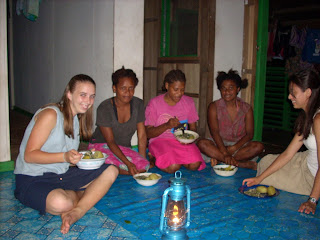
In the summer of 2008, I had my first experience designing and implementing my own ethnographic research project for my MA at CSULB. This was definitely a stretching, but amazing experience. I traveled across the Pacific Ocean to the small island of Santa Cruz in the Solomon Islands. I lived in a house in a remote village with one other American student named Angela Hoover, and three local young women. When I say remote I mean: no electricity, no running water, bathed in a river, peed on the beach next to pigs, slept on camping mats, cooked over a fire, didn't see another white person kind of remote. This remoteness was challenging. Through this experience, God showed me that if I were to live overseas long term I would need a few comforts like a thin mattress, the ability to occasionally cook my own food, and ideally electricity for a laptop, at least occasionally to help keep me sane. But more than the physical needs, God used this to show me my spiritual and relational needs. Since Angela was the only other person who spoke English, I learned to truly talk with God about what was going on. Angela and I grew close and this showed me how important it was for me to have community. I knew if I were to do this in the future I would need a partner, whether that was a husband or another woman I did not know, but I knew I couldn't do this alone.
Looking back, it seems crazy that Wycliffe let two girls in their early twenties go to this village by ourselves, but God had paved the way. Because of my previous village experience in PNG and my language learning there, they were confident I could handle it. We were also connected to locals who had worked with the Boergers (a missionary family who had been on the other side of the island previously), so we were never alone. Plus we had a weekly radio conversation to check in with the Wycliffe member in the capital. God opened this door because he knew I needed this experience. I gained more of a passion for anthropological work and gathered data and stories that I am still using today. Likewise, I was finally able to live overseas, if only for a summer, and build real relationships with a local community. I fell in love even more with the Melanesian culture and left the Solomons with a desire to return in some capacity in the future.
2009 - The Year of Becoming a Master
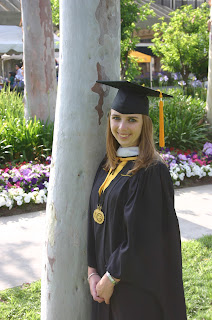
After muddling through hours of data and interview recordings and after drafting and rewriting chapters upon chapters, I finished my MA in Anthropology in August 2009. I was so amazed that I had accomplished such a goal. Never in my life did I think I would write 8 chapters, 145 pages, and 45,000 words... but through the grace of God and with the help of a supportive adviser, I did. This was not an easy experience though. It brought up so much doubt and anxiety. I feared I would never be able to finish and that I would disappoint everyone around me. Because of these emotions that were brewing, I finally began my journey of spiritual healing through different types of counseling. God knew that I needed the challenges in my life at this time to inspire me to seek him and seek help processing through the past and present. The things I learned through this and the years that followed is worth its own post, so I won't delve into details, but what is clear is that even in my anxieties, God was present and without him I wouldn't have finished my MA. Besides the emotional journey, the actual writing of the thesis was an exhausting experience, so after finishing my thesis, I literally and figuratively put it on the shelf for 5 years.
Because of the challenges of my MA program, I never thought I would continue in academia, which shows why sometimes I get so confused and surprised that I am here now, but God knew that I needed a break and a time to heal and pursue other things in life. I also needed to learn to wait and trust, but more of that in the next post. Even though the thesis and research was on the shelf, my passion of missions and the Melanesian culture never faded...
After finishing my MA, I traveled around Europe for a month with my best friend. This fulfilled another dream that we had talked about since Biola of backpacking around Europe. It was such a freeing and rejuvenating experience and a great way to cap off 2009.
Summary of 2005-2009
So the first 5 years of my 20s were amazing! I traveled to numerous countries including over a month in Swaziland, Papua New Guinea, the Solomon Islands, and Europe. I graduated with a BA and an MA. I moved to a new city, made new friends, and found a new church. Not mentioned in this post, I started my first real relationship, went swing dancing regularly, became a Disney pass holder, saw my mom get remarried and in doing so gained new family, plus so much more. My list of accomplishment and what I could be known for could go on and on, but the point of these posts are not to say here is what I've done, it is to say here is how God worked and used these experiences.
The first 5 years of my twenties included God fulfilling and reshaping long held dreams. As I took each step, whether to another country or down the graduation aisle, he was guiding me and preparing me for what was next. I learned to listen to his voice. I sought healing for grief and fears I had never dealt with. I learned to trust in difficult circumstances and I learned to follow God even if the path ahead was not going where I thought it would. These lessons and more continued to be woven through the rest of the decade... God was at work...
